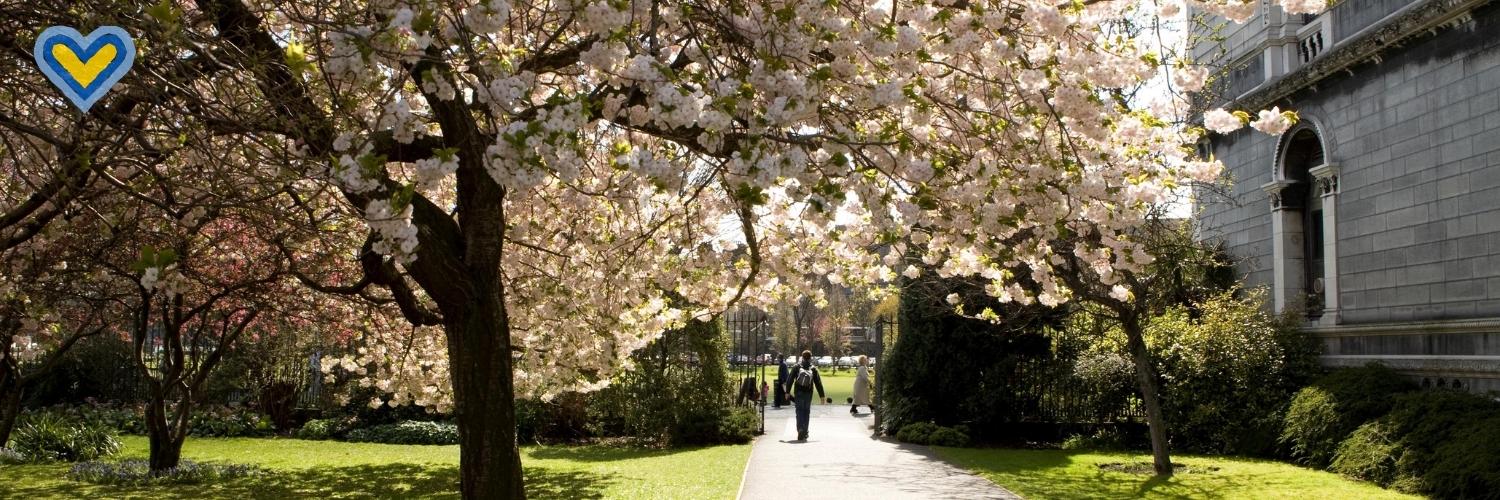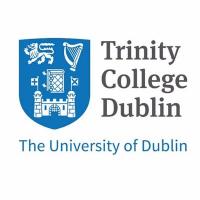Contextual Theologies and Interfaith Relations (M.Phil)
Every theology is contextual and political, but not every theology is liberative. The MPhil in Contextual Theologies and Interfaith Relations (CT&IR) is an interdisciplinary course that explores the inherent contextuality and pluralism of theological reflection, and especially their implications for inter- and intra- faith relations. ‘Faith’ here is understood broadly, drawing from a wide range of religions and spiritualities, some traditional and institutionally-structured, others more experimental and experiential. The course reflects the critical, self-critical and committed engagement with theological praxis on the part of the scholars who deliver it; modules pay close attention to the disciplined interplay of faith with the socio-political realm, both in terms of historical legacy and present possibility. Lectures and seminars probe key issues of the day, including faith’s complex relationships with social class, caste, race, ethnicity, nationhood, gender, sexuality and ecology. Students attend to the practical and theoretical possibilities of engaging – in depth and in context – with the challenging theological praxis of justice, peace and the integrity of creation. By offering a wide range of critically reflective faith perspectives from the Americas, Asia, Africa, Europe and the Middle East, this master’s course blends together the themes of liberation theologies, with those of ecumenical and interfaith dialogue.
There are three main strands in the course:
1. Religions, politics, ethics and pluralism in multiple contexts (e.g. Global South and Global North) with a particular focus on religion and secularity; religion and human rights; religion, conflict and peace; religion and race, caste, gender, sexualities; and religion and postcolonial/decolonial critique.
2. Ecumenical dialogue, with a particular focus on how ecclesial communities reimagine formerly antagonistic relationships as part of a repentant reconfiguration of postcolonial and postimperial religious identities.
3. Liberationist and interreligious theologies that blend interfaith dialogue with the themes of justice, peace, reconciliation and the integrity of creation involving Buddhist-Christian, Buddhist-Muslim, Hindu-Muslim, Christian-Muslim and Jewish-Christian and indigenous traditions.
Lecturers draw on a wide range of critically engaging scholarly perspectives, including those of contextual, ecumenical and interreligious theologies; liberation/feminist/queer/peace theologies; historical theology and theological anthropology; Buddhist, Hindu, Islamic and Jewish studies; critical theories (postcolonial and postmodern); politics; sociology; and ethics.
Liberationist and interfaith immersion programmes in the Middle East and South Asia, as well as the internship module, The Praxis of Contextual Theologies and Interfaith Relations, offer students the opportunities to engage with reflective practitioners in this field and make connections between theory and practice in their chosen field of study.
The course also offers fieldwork visits to different places of worship in Dublin, a research trip to Belfast, and to the World Council of Churches in Geneva (which may be combined with the International Peace Studies visit to the United Nations).
A range of international conferences will be made available for students who wish to participate and become familiar with established and emerging scholars in the field.
Modules include: Research and Methods in Contextual Theologies and Interfaith Relations; Religions, Politics and Ethics in a Pluralist World; Reimagining Ecumenical Theology: Dialogue and Difference; Nature, Grace and Place: Theology, Maps and Territories;
Liberationist and Interreligious Theologies; Issues in Buddhist-Christian Dialogue; Muslim God, Christian God: Islam and Muslim-Christian Comparative Theology; Engaging Religious Fundamentalism; Religions, Conflict and Peace in International Relations; Northern Ireland: Religion, Conflict and the Politics of Peace.
Students on this course may also apply to take a module from one of the School of Religion’s other taught master’s courses for assessment in both Dublin and Belfast: International Peace Studies, Conflict Resolution and Reconciliation, and Christian Theology.
Intakes
- Jan
- Sep
Application Processing Time in Days: 30
Minimum English Language Requirements
| English Level Description | IELTS (1.0 -9.0) | TOEFL IBT (0-120) | TOEFL CBT (0-300) | PTE (10-90) | |
|---|---|---|---|---|---|
| Expert | 9 | 120 | 297-300 | 86-90 | |
| Very Good | 8.5 | 115-119 | 280-293 | 83-86 | |
| Very Good | 8 | 110-114 | 270-280 | 79-83 | |
| Good | 7.5 | 102-109 | 253-267 | 73-79 | |
| Good | 7 | 94-101 | 240-253 | 65-73 | |
| Competent | 6.5 | 79-93 | 213-233 | 58-65 | |
| Competent | 6 | 60-78 | 170-210 | 50-58 | |
| Modest | 5.5 | 46-59 | 133-210 | 43-50 | |
| Modest | 5 | 35-45 | 107-133 | 36-43 | |
| Limited | 4 | 32-34 | 97-103 | 30-36 | |
| Extremely Limited | < 4 | < 31 | < 93 | < 30 |
Job Opportunity Potential
If you are an international student studying at Trinity, you might be considering internship and graduate work in Ireland, in your home country, or elsewhere. This section provides information for Non EU students on working in Ireland during and after your studies. For information and resources to support an international job search, see our Devex resource which includes international job search advice and information.
Employers value candidates who have more to offer than a good degree with high grades. They look for students who are well rounded and who have experience outside the classroom. Search for and take advantage of opportunities to gain experience, develop your skill set, and gain a clearer picture of what you like and don't like in terms of career options.
For example, you can get involved in some of the many student clubs and societies in college, volunteer or get a part time job. Remember that voluntary work is as valuable as paid work on your CV or resume - it's a great way to demonstrate your skills to future employers. Have a look at the TCD Civic Engagement website and check out volunteering opportunities in Ireland and abroad.
PSW Opportunity
- 2 Years
Admission Requirement / Eligibility Criteria
Postgraduate Admission Requirements
Postgraduate work in Trinity is academically challenging and the University has high academic entry requirements.
Applicants will need to:
hold at least a 2.1 honors degree from an Irish university or equivalent result from a university in another country.
display a high level of competence in the English language in one of the examination systems recognised by Trinity College Dublin.
To qualify for admission to a degree course at the University you must meet the requirements outlined above. For more information on what you must include in your application, please see our detailed guide on Making an Application.
Postgraduate English Language Requirements
All applicants whose first language is not English and who have not been educated through the medium of English must present one of the following qualifications in the English language:
IELTS (Academic version) and IELTS Indicator : Grade 6.5 overall.
TOEFL and TOEFL iBT Special Home Edition: 88 internet-based, 570 paper-based, 230 computer-based.
University of Cambridge:
Proficiency Certificate, Grade C or better (CEFR Level C1 or C2)
Advanced Certificate, Grade C or better (CEFR Level C1 or C2)
Pearson Test of English (Academic) - PTE Academic: a minimum score of 63 to be eligible (with no section score below 59)
Duolingo English Test: minimum overall score of 120/160 with no section below 105, dated since January 2020
An award certificate with a minimum II.1 overall score from Trinity's Centre for English Language Learning and Teaching's Pre-Master's Pathway Programme. The Pre-Master’s Pathway Programme is an academic English course for international students with conditional offers for postgraduate study at Trinity. Passing the programme means you meet Trinity’s English language requirement and can progress to your postgraduate course without retaking IELTS or any other exam.
Please also note that existing IELTS, TOEFL, Cambridge and PET scores up to two years old will be accepted for 2023/24 applications in light of test centre closures.
- Course Type: Full Time
- Course Level: Masters/PG Degree
- Duration: 01 Year
-
Total Tuition Fee:
17770 EUR
Annual Cost of Living: 10500 EUR
Application Fee: 55 EUR
Similar Programs
- Comparative Social Change (M.Sc.) at Trinity College Dublin
- Social Work (M.Sc.) at Trinity College Dublin
- Law (LL.M.) at Trinity College Dublin
- Applied Social Research (M.Sc.) at Trinity College Dublin
- International Politics (M.Sc.) at Trinity College Dublin
- Law and Finance (M.Sc.) at Trinity College Dublin

